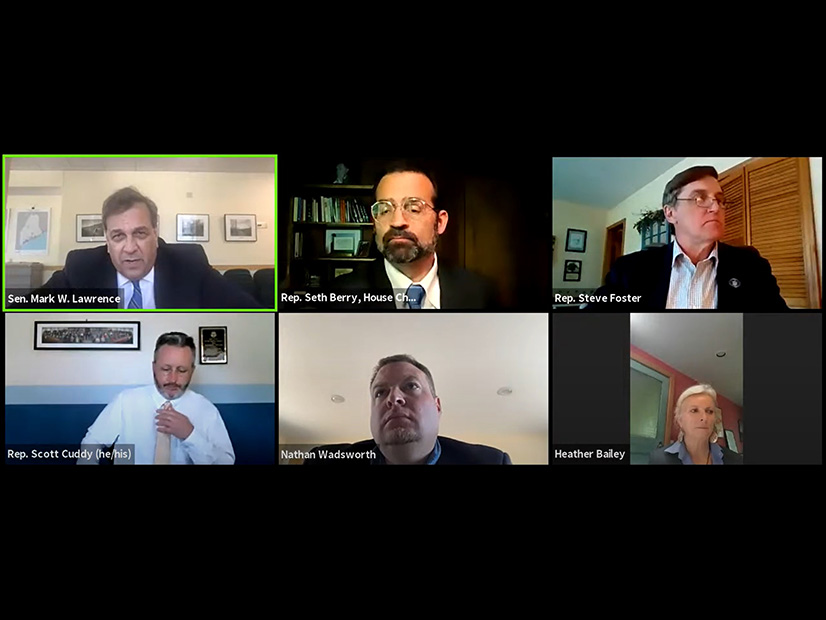A bill before Maine legislators seeks to replace the state’s two investor-owned utilities with one consumer-owned nonprofit, should regulators find the IOUs unfit.
“LD 1708 will let us control our own money and our own energy destiny, and will let us advance both fast and fairly toward our own clean energy and connectivity future,” Rep. Seth Berry (D), sponsor of the bill, told the Committee on Energy, Utilities and Technology in a hearing on the bill last week.
The bill would require the Public Utilities Commission to direct the sale of Central Maine Power and Versant Power if by 2024 if it is found unfit based on customer satisfaction, reliability and rates. It would then create a consumer-owned utility called Pine Tree Power to purchase the IOUs’ assets.
Maine law already allows the PUC to determine a utility’s fitness to serve, but there are no standards for making that determination.
“This bill would set a definition and set a baseline of expectations of our utilities that we entrust with the privilege of a monopoly, that we allow to use our public rights of way and that we allow to use eminent domain against our own citizens,” Berry said.
CMP is owned by Spain-based Iberdrola via Avangrid (NYSE: AGR), and Versant is owned by the Canadian city of Calgary’s utility, ENMAX.
If the bill passes, it will go before voters in November.
In testimony opposing the bill, Versant President John Flynn said the utility is working to change how it performs and is perceived in Maine.
“The idea that the government may force divestiture of Maine’s two privately owned transmission and distribution utilities is perhaps the single largest variable in terms of disruption to” the state’s climate progress, he said. “To achieve our climate and grid modernization objectives, we need everyone working together, and we have neither the time nor the money to waste on polarizing fights.”
Joshua Dunlap, an attorney with Pierce Atwood, testified on behalf of CMP in opposition to the bill, saying that it is unconstitutional and would, therefore, “generate lengthy and complex litigation.” The state, he added, would potentially be responsible for paying millions of dollars in legal fees from a constitutional challenge.
The PUC also sees the bill as risky, although it did not support or oppose it in testimony.
Potentially time-consuming litigation before the PUC and the courts could “frustrate the state’s goals of grid modernization and beneficial electrification,” said Garrett Corbin, PUC legislative liaison.
The proposal for what amounts to a government takeover of the IOUs is significant and requires caution, according to the Governor’s Energy Office (GEO). It raises “substantial and serious questions” that deserve more time to address than allowed during the current session, Director Dan Burgess said. While the GEO neither supports nor opposes the bill, it believes further study should be conducted on the income and property tax impacts of the proposal as well as issues of eminent domain and how Pine Tree would be governed.
Sen. Richard Bennett (R) co-sponsored the bill along with a bipartisan group of senators and representatives. The ownership model by foreign governments and corporations, Bennett said, “has been a disaster.”
It “drains money from Maine while leaving us with the most outages, the longest outages, the worst customer service and among the highest rates in the country,” he said.
The bill is not the first attempt by Maine lawmakers to create a consumer-owned utility to replace the state’s IOUs. But Berry said LD 1708 improves on previous iterations based on input from the public, lawmakers and experts. It includes, among other things, a clear climate- and jobs-focused mission statement and strict regulatory oversight of the transition and the utility itself.




